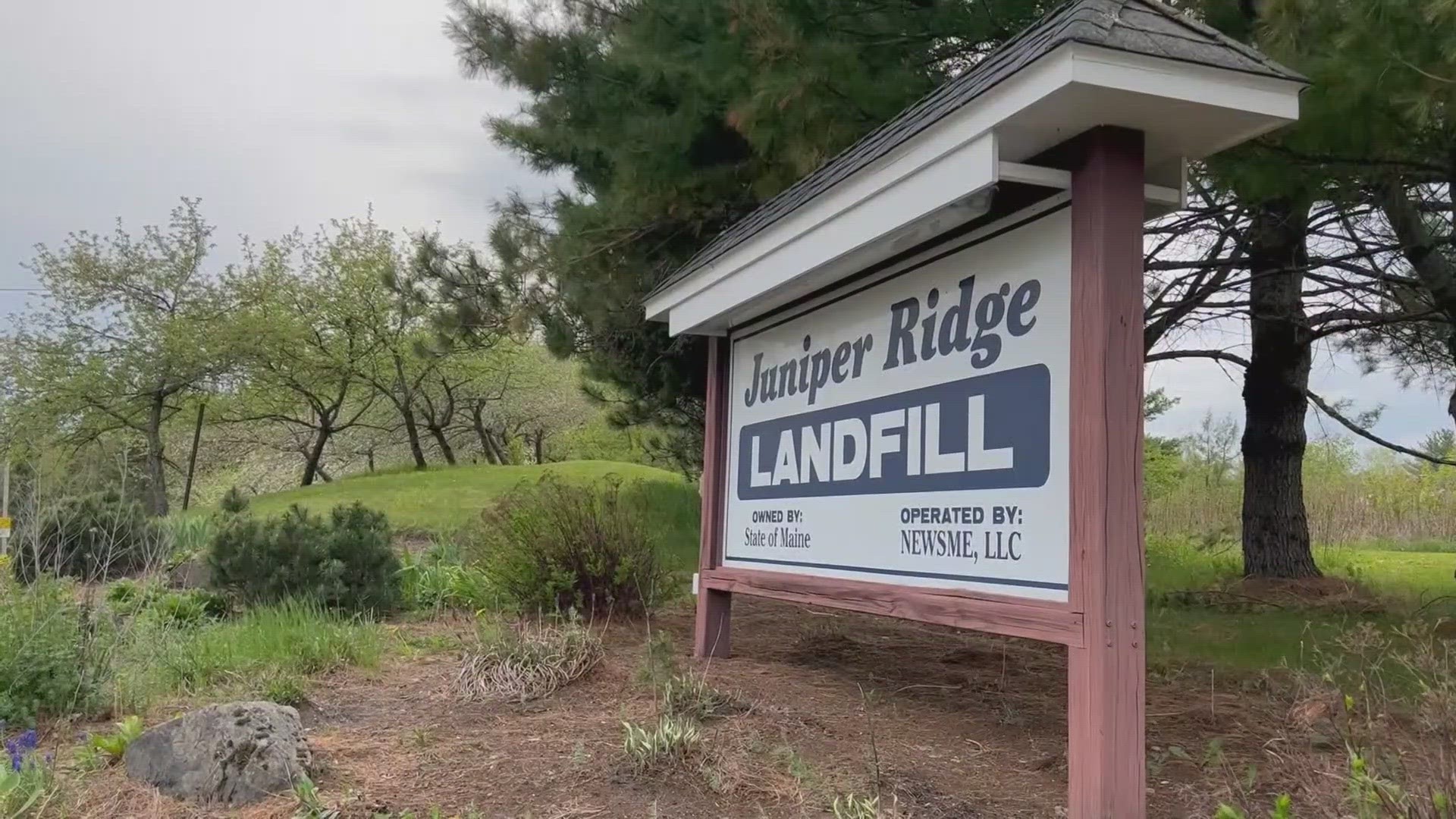MAINE, USA — A crisis over where to send municipal sludge containing toxic chemicals known as PFAS is over for the short term.
Biosolids were shipped from Maine to New Brunswick, Canada, from late February to last month. Casella Waste Systems, which manages the Juniper Ridge Landfill, says conditions at the state-owned facility were unsafe.
Things were more than stressful for Maine's largest water district earlier this year.
"We didn't know where the material was going to go, and we had no assurance of when it would go out," Scott Firmin, the director of wastewater services for Portland Water District, said.
The utility, with nearly 100-thousand customers in the Greater Portland area, was left scrambling after Casella Waste Systems said it could not safely accept municipal sludge at the Juniper Ridge Landfill. The only option for 30 municipal customers—trucking the waste north of the border to New Brunswick, Canada.
"We went from all our material being landfilled by Casella to 86 percent of our material going to Canada," Firmin explained.
Jeff Weld, Casella's Director of Communications, says municipalities are now disposing of their sludge again at the landfill, and the extra monthly fees have dropped as well.
"By July 10th, we were fully back to Juniper Ridge Landfill with the amount of sludge that had been bypassed, and that's up to 350 tons daily," Weld said.
Casella blames the crisis on two laws passed last year.
One, which went into effect a year ago, stopped the decades-long practice of spreading sludge on farmland as fertilizer after tests found it contained high levels of toxic industrial chemicals known as PFAS. The second banned shipments of construction debris from outside Maine; the company says it needs to stabilize the landfill.
An emergency bill, LD 718, passed earlier this summer, allows Casella to accept out-of-state waste to bulk up the sludge for the next two years. The company is also looking for new solutions to manage biosolids.
"If before the sludge is brought to the landfill, we can put it through a drying process, take the liquid out of it and make it easier to manage, then we don't need as much bulky waste," Weld explained.
Communities are also stepping up to be part of a solution; several utilities, developers, and technology companies attended a two-day summit last week to find out more about preliminary plans by the Portland Water District to build a regional sludge treatment facility.
"A regional approach can reduce costs by 15 to 20 percent. That's one of the things we are looking at and how that help other utility partners in the area," Firmin explained.
PWD plans hope to have a plan detailing cost projections by November to present to state regulators and lawmakers. Firmin says a regional sludge treatment facility could utilize advanced thermal technologies to reduce or eliminate PFAS from biosolids safely.

